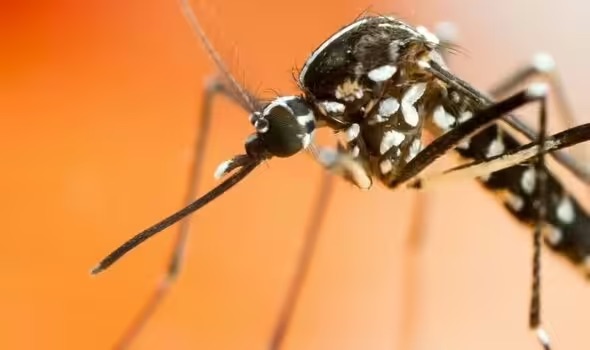A serious warning has been issued as the Asian Tiger mosquito, known for transmitting dengue fever, has established itself in 13 EU countries and has been discovered in a region of the UK. The spread of these mosquitoes across Europe is linked to climate change creating favorable conditions for their proliferation. Experts have confirmed their presence in Kent as well. The WHO warns that nearly half of the world’s population is now at risk of dengue fever, potentially resulting in 100-400 million cases each year.
These Tiger mosquitoes have also been reported in northern France and have subsequently moved into Belgium and the Netherlands.

The European Centre for Disease Prevention and Control (ECDC) has informed the Express that the UK’s environment may soon become suitable for Tiger mosquitoes.
An ECDC spokesperson stated: “Due to international travel and transportation of goods, it is likely that Tiger mosquitoes will continue to be introduced into the UK. With ongoing climate change, conditions are expected to become more favorable for their establishment. However, it is challenging to predict exactly when this will occur. The mosquito has already been detected in one region of the UK. In theory, regions where mosquito populations become established could experience future outbreaks of diseases such as dengue, chikungunya, and Zika, although numerous factors would influence such occurrences.”
Dengue fever, transmitted by mosquitoes, is often asymptomatic but can result in serious health complications, including fatalities. Symptoms include high fever, headaches, pain, nausea, and rash. Recovery generally takes one to two weeks, though severe cases may require hospitalization. To prevent mosquito bites and minimize dengue risk, protective measures such as wearing long clothing and using repellents are advised.
